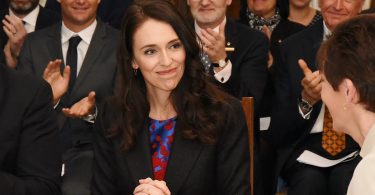Last week, Britain voted to leave the European Union, marking June 24th 2016 as one of the most important dates in UK politics. In the aftermath of Brexit, David Cameron announced his resignation as Prime Minister, the pound has dropped to a 31-year low and the Labour party MP’s are due to discuss a vote of “no confidence” against their party leader, Jeremy Corbyn.
Mr Corbyn is facing growing criticism for his handling of the EU Referendum campaign, leading to a wave of resignations among his shadow cabinet. The Labour leader has since appointed a new cabinet. The shake-up includes Diane Abbott, a Corbyn ally and former shadow international development secretary, being appointed as shadow health secretary. Emily Thornberry will replace Hilary Benn as shadow foreign secretary, after he was fired at the weekend.
Many of the politicians announced their resignation on Twitter, including Chris Bryant, the shadow Commons Leader, whose detailed letter questioned Mr Corbyn’s ability to lead, describing his attitude as a ‘betrayal’ to the party, stating: “You left many Labour voters uncertain as to our party’s position. You made speeches that underminded the campaign to stay in the EU.”
I have just spoken to Jeremy Corbyn. Here is my resignation letter. pic.twitter.com/n0Tbya06is
— Chris Bryant MP (@RhonddaBryant) June 26, 2016
Other members who have quit include Angela Eagle, who described her leave as an “agonising decision”, John Healey and shadow Minister for Public Health, Luciana Berger.
I have just hand-delivered Jeremy Corbyn my resignation letter. pic.twitter.com/ntnHFzeaXN
— John Healey MP (@JohnHealey_MP) June 27, 2016
“your ambivalent attitude in the campaign was a betrayal of the Labour Party and the wider Labour movement and it has let down a whole generation of young people who desperately hoped to hear a strong, cogent and inspiring pro-EU message from Labour.” – Chris Bryant.
Meanwhile, Alan Johnson, Chair of “Labour In For Britain” claims that Corbyn’s office “were working against the rest of the party and had conflicting objectives”, showing an image of a largely divided Labour party, especially in their support of Jeremy Corbyn.
This is better snap of Alan Johnson’s email saying Corbyn’s office “undermined” his pro EU campaign pic.twitter.com/J7feFnxDI0
— Robert Peston (@Peston) June 27, 2016
Amid all these calls for resignation, which total 20, including the sacking of Hilary Benn, how has the Labour leader responded? With notice of his regret that so many members have resigned, but also with refusal to step down without a democratic election. Mr Corbyn took to Twitter to make clear his intentions to honour his elected leadership and to run again in the new elections.
Those wanting to change Labour’s leadership will have to stand in a democratic election in which I’ll be a candidate pic.twitter.com/Rt7y3UUQeV
— Jeremy Corbyn MP (@jeremycorbyn) June 26, 2016
Those wanting to change Labour’s leadership will have to stand in a democratic election in which I’ll be a candidate – Jeremy Corbyn
The response to Mr Corbyn’s announcement shows divided public opinion, with some people urging he step aside now and others sharing their continued support.
@jeremycorbyn big up babe I’m here for you forever x
— Arjan (@arjan____) June 26, 2016
A secret ballot could be Tuesday to decide on the motion of no confidence in Mr Corbyn. The motion was submitted by Labour MPs Ann Coffey and Dame Margaret Hodge.








